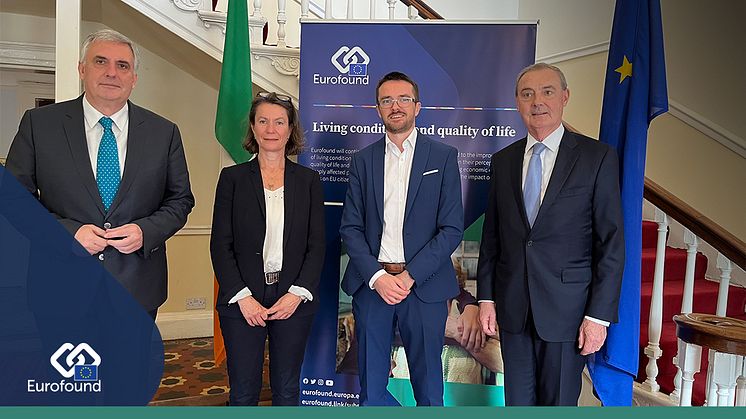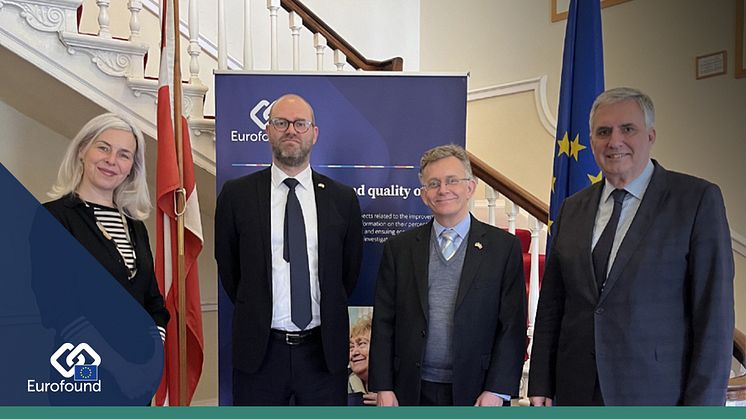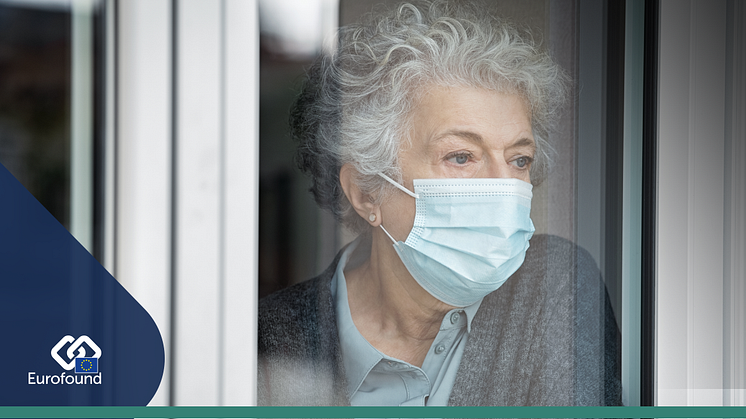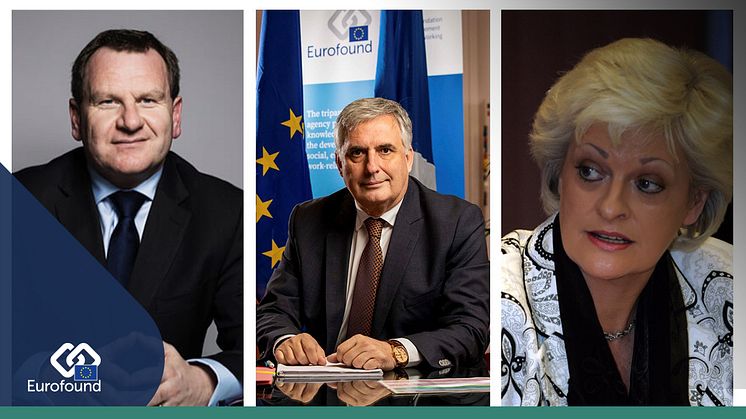Eurofound and IIEA discuss labour market change and future of work
The Directors and senior staff of Eurofound and the Institute of European Affairs (IIEA) met at Eurofound, Dublin this week, following the recent appointment of David O’Sullivan as the Director General of IIEA. It was an opportunity to review ongoing collaboration between the two organisations, as well as discuss latest research; including on the economic, employment and social impacts of the COVI




















